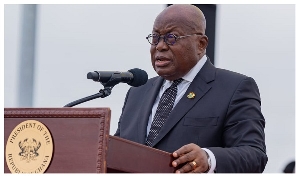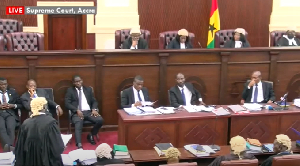Opinions of Friday, 22 March 2024
Columnist: Aaron Babako Korkormissah
Do we need new ministers at this time?
The appointment of new ministers under President Nana Addo Dankwa Akufo-Addo has been a point of discussion for many Ghanaians. With the recent reshuffling of his cabinet in January 2021, there is a need to analyze whether these appointments will serve a very good purpose and what the economic implications of these changes may be.
President Nana Akufo-Addo won a second term in office in December 2020, and this has allowed him to make changes to his cabinet. The appointment of new ministers is a common practice in many governments around the world, as leaders seek to bring in fresh perspectives and talent to steer the country towards its goals. In the case of Ghana, the President has appointed new ministers to key portfolios such as finance, health, and education, among others.
One of the main arguments in favour of the appointment of new ministers is that it can bring in fresh ideas and expertise to tackle the challenges facing the country. With Ghana facing economic challenges such as high debt levels, inflation, and unemployment, having competent ministers in place is crucial to addressing these issues. By appointing new ministers, President Nana Akufo-Addo is signalling his commitment to finding solutions to these challenges and improving the lives of Ghanaians.
However, there are also concerns about the appointment of new ministers and whether it will serve a very good purpose. Some critics argue that frequent changes to the cabinet can disrupt the continuity of policies and programs, leading to inefficiencies and delays in implementation. There is also a fear that inexperienced ministers may struggle to handle the complexities of their portfolios, leading to poor performance and negative outcomes for the country.
In terms of the economic implications of the appointment of new ministers, there are both positive and negative aspects to consider. On the positive side, the appointment of competent and experienced ministers can boost investor confidence and attract foreign investment. This can lead to economic growth, job creation, and improved living standards for Ghanaians. Additionally, new ministers with fresh ideas and approaches can help address longstanding problems in the economy and bring about positive change.
On the negative side, the appointment of new ministers can also disrupt existing policies and programs, leading to uncertainty among investors and businesses. This can result in a slowdown in economic activity and hinder the country's development goals. Additionally, if the new ministers are not able to effectively manage their portfolios, this can lead to a waste of resources and poor economic performance.
In conclusion, the appointment of new ministers under President Nana Akufo-Addo has the potential to serve a very good purpose by bringing in fresh perspectives and talent to address the challenges facing Ghana. However, there are also concerns about the impact of these changes on the economy, with both positive and negative implications to consider. The new ministers need to work together with their teams, stakeholders, and the public to ensure that their appointments lead to positive outcomes for the country.













